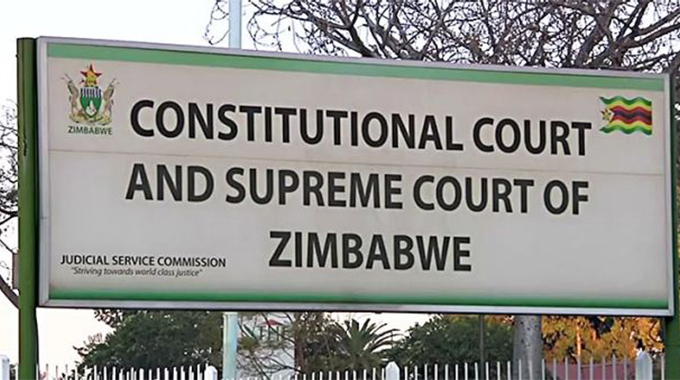Constitutional Court Bill gazetted

Fidelis Munyoro, Harare Bureau
Government has gazetted the Constitutional Court Bill which will govern the operations of the Constitutional Court.
Published in an extraordinary Government gazette yesterday, the Bill is part of the alignment of laws to the Constitution.
It will also regulate the jurisdiction, powers, practice and procedure of the court.
The Bill provides for the composition, regulation and appeals from decisions of lower courts and other matters connected to the operations of the ConCourt.
The ConCourt is a superior court of record established in terms of Section 166 of the Constitution of Zimbabwe, 2013.
It is the highest court in all constitutional matters, and its decisions in such matters bind all other courts.
Once enacted, the Bill is expected to provide and ensure an effective and efficient justice delivery system.
Clause 5 of the Bill, provides for the manner in which decisions are made by the ConCourt.
“Decisions are made by the majority of judges sitting at any particular time. This clause also gives power to Chief Justice to appoint an Acting Judge where one of the judges is no longer able to continue sitting as a judge due to death, physical incapacity or retirement.
“Generally, the decisions of the Constitutional Court are final. In handing down judgments, the court shall not be bound by its previous decisions,” the clause reads.
Clause 7 of the Bill does not allow a judge to sit in a matter where he or she has formally participated in the making of the previous decision concerning the same matter.
Another striking feature in the Bill is Clause 20, which provides for the Court’s inherent jurisdiction.
“In terms of this clause, the Constitutional Court has got power to protect and regulate its process and develop common law and customary law with particular attention being given to the interest of justice and the provisions of the Constitution.”
The court will also have powers to refuse to entertain any matter instituted by any person where there is another remedy available to such person.











Comments